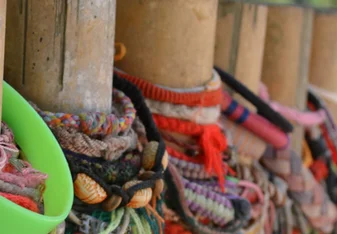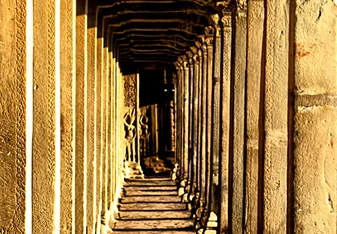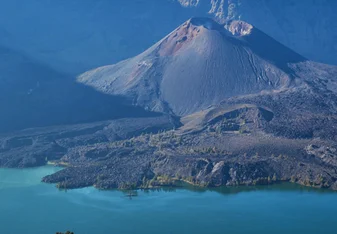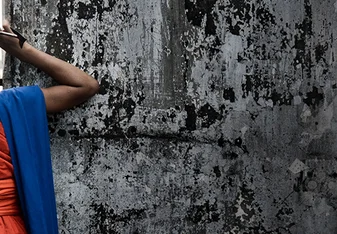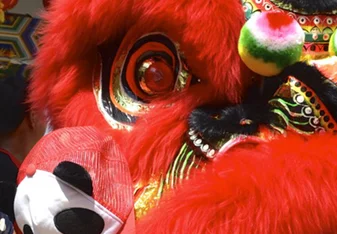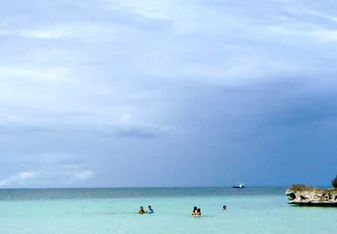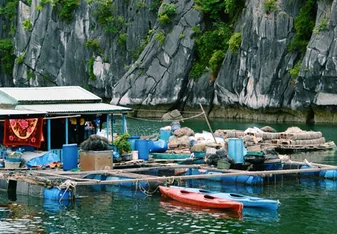Gap Year Programs in Cambodia
About
Cambodia, the Empire of Temples, takes up a central part of the Indochina Peninsula and has Thailand, Vietnam, and Laos as its neighbors. This recently growing in popularity South East Asian destination has some falling in love with it at first sight and the other not wanting to come back ever again. If you find other South East Asian countries intense, double that and you have Cambodia at its best.
Visiting the land of Khmers, prepare yourself for amazing food and delicious chocolate-tasting coffee. Siem Reap takes you back in time to the magical Angkor Empire, waters of Tonle Sap amaze with their diversity, Phnom Penh offers a unique urban jungle experience, and Kampot gives this world the best pepper. On the other hand, the Killing Fields and S21 Museum fill you with dread and sadness over the brutal Khmer Rouge regime. Traveling over land in Cambodia is an experience in itself...the roads are far from perfect, the horns never stop, and the Khmer karaoke is blasting full volume out of your rather aged tour bus’s speakers. All locals singing along of course. Fasten your seat belt (what seat belt?) and enjoy the ride! Remember one thing though, never take the night bus. Just don’t!
Types of Programs
Volunteering
Cambodia being one of the poorest countries in the world, boasts a huge number of volunteering opportunities. Mainly in schools and orphanages, there are a number of opportunities for qualified teachers and carers. There’s also a lot of work available in the medical sector, desperately needing to improve its standards. Rural development programs offer several volunteering placements.
Traveling
Cambodia is a country for well-seasoned travelers not afraid of a challenge! But for those who brave it, boy does it pay back! From the fore mentioned temples galore to sandy beaches you can jump in both feet and have the ride of your life (quite literally) and if you have the courage, go explore the countryside. You won’t regret it!
Adventure Travel
What a gem Cambodia is when it comes to adventure travel. Its unexplored and largely unspoiled landscape makes it one of the prime adventure travel destinations. You’ll find anything you want here, from trekking, kayaking, and scuba diving to dirt biking and motorcycling and all that in awe-inspiring surroundings. A must for any challenge seekers!
Planning Your Trip
Visas for Cambodia
- All travelers except citizens of Singapore, Indonesia, Malaysia, Philippines, Vietnam, Thailand, and Laos need a visa to enter the Kingdom of Cambodia.
- Tourist visas are valid for 30 days and the official price is $20. However, this may vary if you are using agencies when crossing over land from any of the neighboring countries. If issued in advance, a Cambodian visa will be valid for 90 days.
- To apply you will need one or two passport photographs. This depends on where the application is made.
- Citizens of most countries can also apply for an e-visa, which can be obtained on the Ministry of Foreign Affairs and International Cooperation website and will cost $25 instead of the usual $20 (applying on arrival).
- While at the border, be prepared for several scams and a lot of corruption. Keep your cool and politely decline any offers if approached by strangers.
Cost of Living in Cambodia
- Traveling around Cambodia is relatively cheap. US Dollars are widely used, however, it’s a good idea to have some local Riel with you, especially in more remote areas.
- Be prepared to be told at the border, if crossing overland, that you must exchange all your currency there and that there are no ATMs and exchange counters across the country. This couldn't be further from the truth. There are plenty of cash points and currency exchange points in all popular destinations such as Phnom Penh, Siem Reap, or Sihanoukville.
- A daily budget of $60-80 per person is plenty unless you want to partake in “touristy” trips like visiting Angkor Wat ($20 per person for a day pass) or Tonle Sap lake ($25 for a half-day trip). Anything classed as tourist activities will be severely overpriced with the money being sucked into a black hole and not going back into local communities, so be prepared for scams and blown-up tourist prices. However, if you act wisely and do your research beforehand, you can get a private tuk-tuk driver for $9-10 a day to drive you around local attractions.
- Guesthouses and small hotels will set you back around $13-20 per night for a double room with air con. and a private bathroom. Do your research first and check reviews for best-recommended places to stay.
- Food is usually really tasty and inexpensive, setting you back as little as $5-6 for breakfast for two, up to $10-14 for lunch or dinner for two if eaten in local restaurants or cafes. Street food is considerably cheaper.
- Drinks like beer and spirits will range from $1 for a beer to $5 for a cocktail in a bar in Phnom Penh. Prices will vary depending on your destination.
- Western commodities such as a cappuccino, latte, or ice cream will cost you around $10 for two.
- Like in all other South East Asian countries, prices for travel will vary. Bargaining is essential! You can get from point A to B for around $10 for a several-hour journey on a local bus with Khmer karaoke from Siem Reap to Phnom Penh or Phnom Penh to Sihanoukville. There are no trains in Cambodia.
- Airfares are all subject to the time of the year you’re traveling and obviously the airline. You can either book tickets with many local agents or if you want to avoid commission check online at Cambodia Angkor Air, Lao Airlines, or Jet Star.
Culture and Etiquette in Cambodia
Cambodia is often described as a country at a crossroads, the more developed areas of Siem Reap, Phnom Penh and also the seaside locals are perfectly accustomed to tourist presence and there should be no problem communicating in simple English. However, in the rural areas, it may be worth knowing a few simple phrases in Khmer. Always politely ask before taking pictures and be prepared for curious stares and gazes from the locals, especially out of the main cities.
- Haggling is a big in Cambodia, so be prepared to bargain! You will be challenged at every opportunity, whether you’re paying for a bowl of Amok in the night market stall or a taxi ride home. Always ask for a big discount and then walk away. You’ll soon be called back with a reasonable counter offer.
- Be wary when approached by children on the street offering to sell you anything from cold drinks to bracelets and postcards. Politely decline and walk away. Buying from street kids keeps them there and families will keep sending them to work and take them out of schools if they see their offspring making profit.
- Cambodia is over 95% a Buddhist country, where feet are considered the least and head the most sacred part of the human body. Don’t point the bottoms of your feet at any person or a Buddhist image, and do not attempt to touch or pat anyone’s head.
- Cambodia is intense in its street vendor culture! They’ll ask you twice in Thailand, they’ll ask three times in Vietnam, in Laos they’re so laid back they probably won’t even bother, but in Cambodia they’ll not only ask 10 times but will follow you down the street. Whether you love it or hate it, this is Cambodia for you!
- Take your shoes off before entering homes and residencies. You may also be asked to leave them at reception at some hotels and guesthouses.
- Just as in other South East Asian countries, in Cambodia, toilet roll goes in the bin next to it, not in the toilet itself.
Costs & Funding
The standards of Cambodia’s health care are distinctively poor, therefore in case of any emergencies, those should be dealt with in Bangkok or Singapore when possible.
Some Tips
- Royal Rattanak Hospital in Phnom Penh or Naga Clinic in Siem Reap and Phnom Penh are private and rather expensive institutions that are clean and can be trusted with medical emergencies.
- It is important to make sure that travel insurance covers the costs of emergency medical evacuation.
- No vaccinations are officially required to enter Cambodia, however, consult your doctor a few weeks prior to traveling to Cambodia is recommended.
- Malaria protection is being advised, especially in rural areas.
- Always have sun cream and insect repellent with you. Drink plenty of treated and bottled water to stay hydrated. Your basic medical kit should contain painkillers, antihistamines, and diarrhea tablets.
- Cambodia is relatively safe to travel nowadays. The usual motorbike bag snatching and pickpocketing may be an issue at night time and at busy street markets, therefore always make sure to keep your valuables safe.
- The main crime in Cambodia is corruption, usually consisting of bribes and the application of the law is very inconsistent.
- Cambodia, similar to Laos, suffers from millions of landmines leftover from the war years. However, these are not considered a risk to tourists as all major visitor areas have been thoroughly cleared.

















